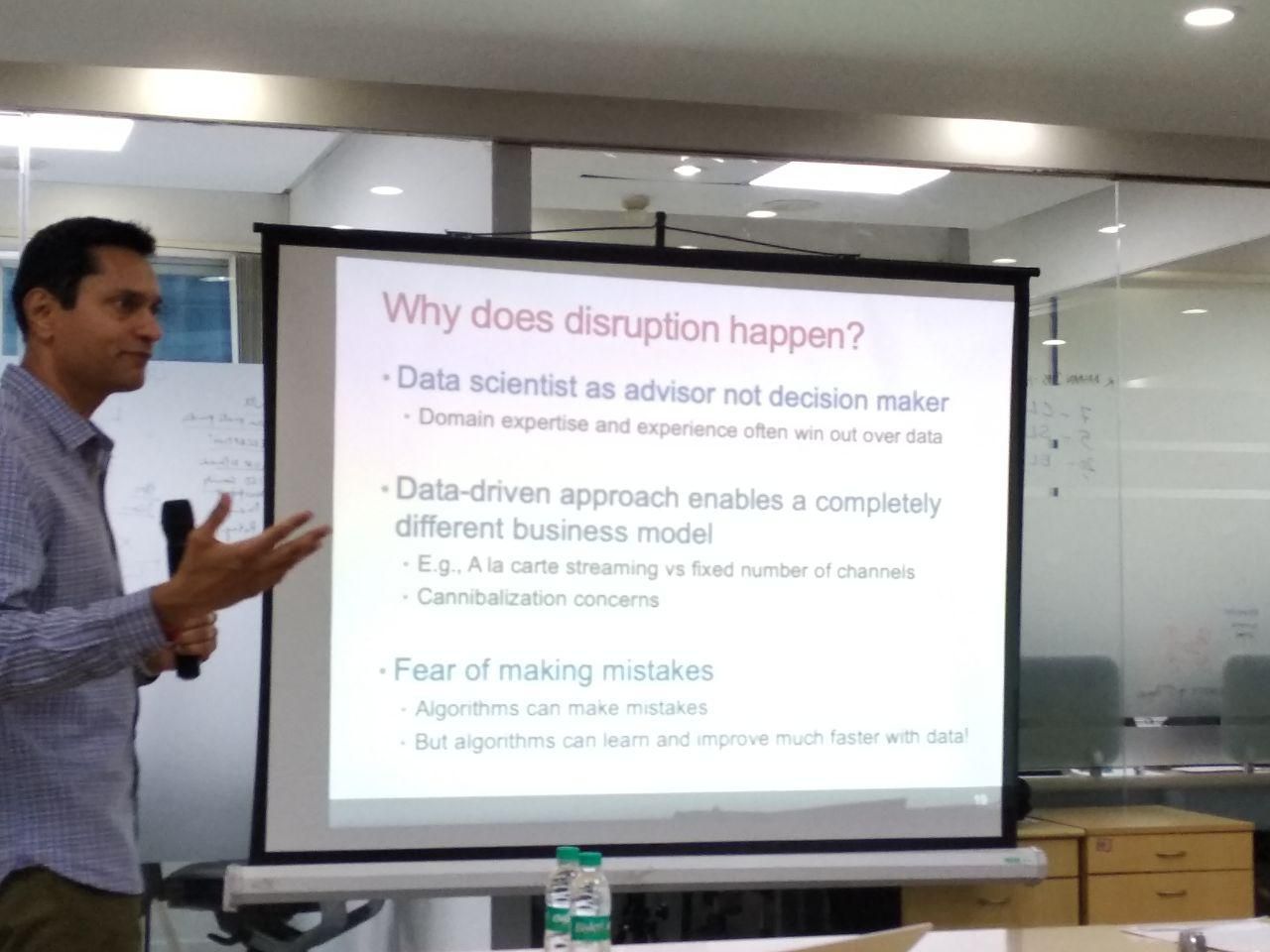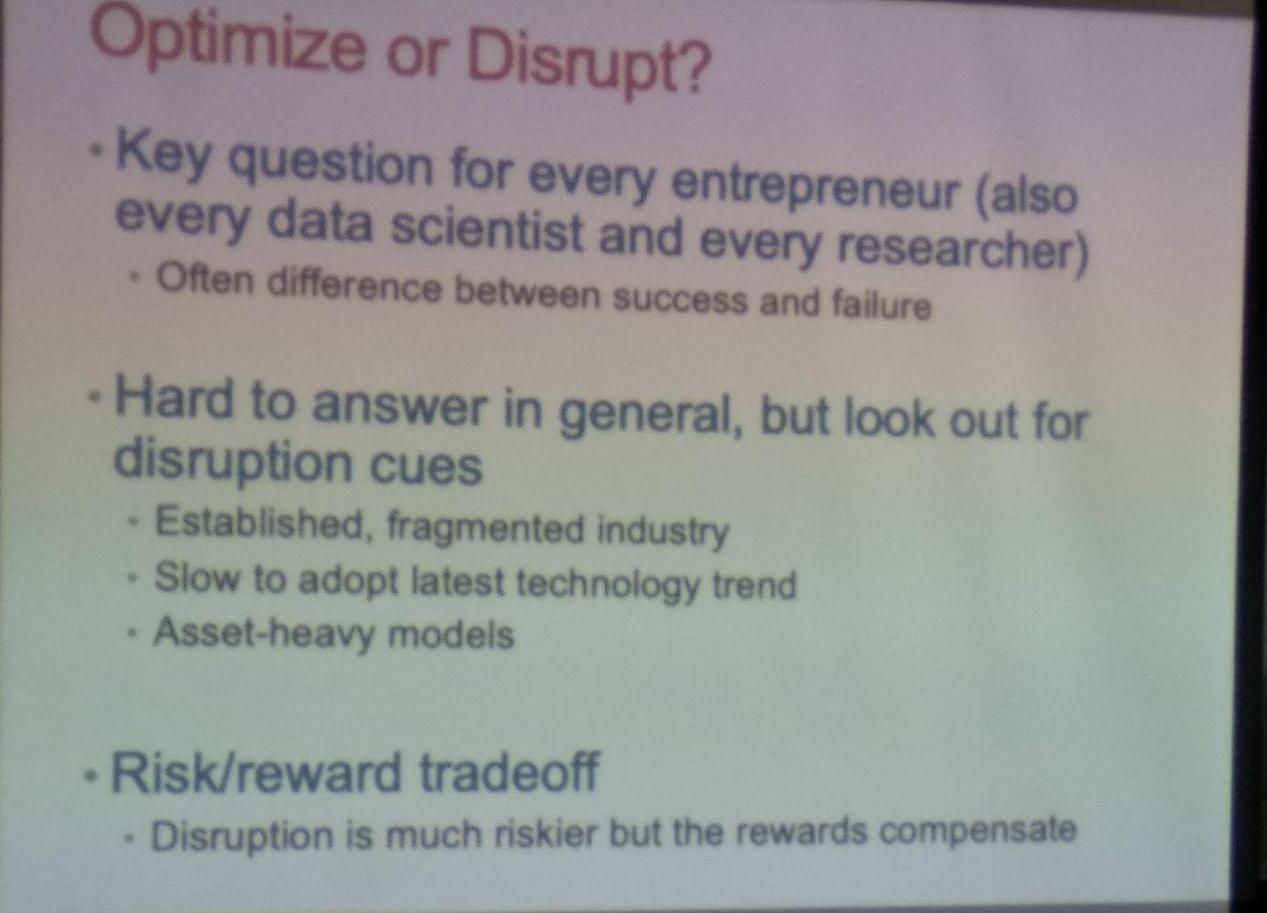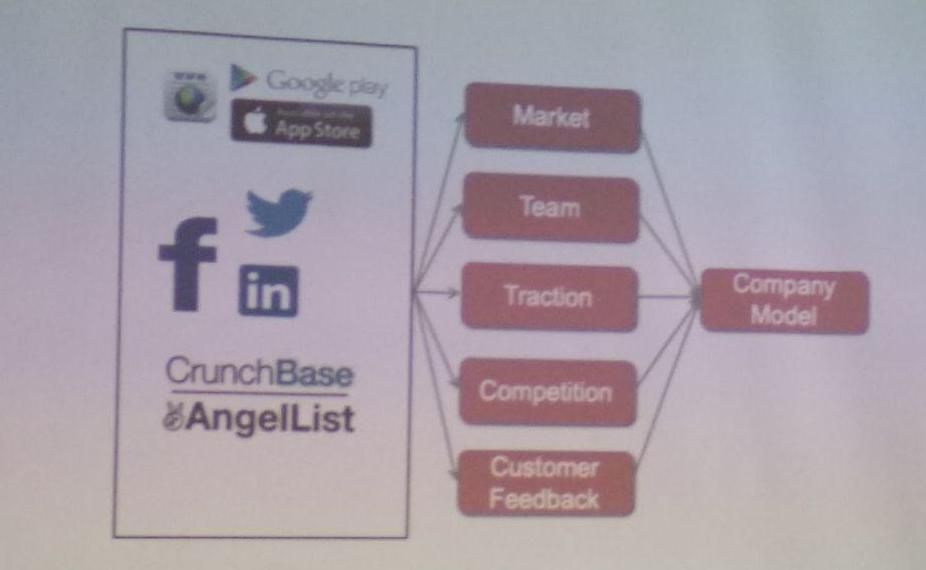I recently had the chance to attend a talk on Data Driven Disruptions by Anand Rajaraman (ex-Kosmix, Junglee, renowned VC in Silicon Valley) at DocsApp.
Anand is an electric speaker with a deep focus on how technology and data can be used to build new types of products. The core of his talk was this fundamental idea that access to a huge amount of data will lead to the creation of new business models which will disrupt existing players.
For example, Netflix has now started creating serials and movies which are guided by how much time people spend on different types of movies. They have a treasure trove of data which captures exactly how much time people are spending on different videos, where they are dropping off or losing attention, etc. Traditional movie studios can't capture such granularity of data as they don't have control over the consumption of the created movie. But Netflix being a streaming platform has lots of data on consumer clickstreams, time spent, etc.
 Why does Disruption happen?
Another key question which Anand urged the audience to think about was: Whether they should use data to optimize existing products or create completely new disruptors? Though there is a scope for both types of innovation, he advocated thinking about disrupting existing business models by new ways of using data. For example, rather than using AI to optimize revenue for hospitals, can AI and data be used to create a new type of hospitals?
Why does Disruption happen?
Another key question which Anand urged the audience to think about was: Whether they should use data to optimize existing products or create completely new disruptors? Though there is a scope for both types of innovation, he advocated thinking about disrupting existing business models by new ways of using data. For example, rather than using AI to optimize revenue for hospitals, can AI and data be used to create a new type of hospitals?
In a way, DocsApp is that new kind of hospital which is accessible to anyone with a smartphone. People from remote parts of India can access doctors and get specialist medical advice for their problems. This creates a new type of business model with no physical infrastructure and not constrained by geographical access.
 Optimize or Disrupt?
Anand also practises what he preaches. In his current firm rocketship.vc they use data to invert the existing VC model. They process data on startups and markets across the globe and reach out to startups which they find interesting. Thus, rather than startups having to reach out to VCs, rocketship.vc proactively reaches out to startups if they match their investment thesis.
Optimize or Disrupt?
Anand also practises what he preaches. In his current firm rocketship.vc they use data to invert the existing VC model. They process data on startups and markets across the globe and reach out to startups which they find interesting. Thus, rather than startups having to reach out to VCs, rocketship.vc proactively reaches out to startups if they match their investment thesis.
 Rocketship.vc Company Model
Though using data objectively in itself is an art. You can use the same data to tell different stories and succumb to the confirmation biases. The key is to have mechanisms to keep such biases in check and let the data tell the story rather than use data to confirm your story.
Rocketship.vc Company Model
Though using data objectively in itself is an art. You can use the same data to tell different stories and succumb to the confirmation biases. The key is to have mechanisms to keep such biases in check and let the data tell the story rather than use data to confirm your story.
Someone has rightly said that "Data is the new gold." So, what data-driven disruptions are you gonna create today?
You can access the slides of Anand's talk here